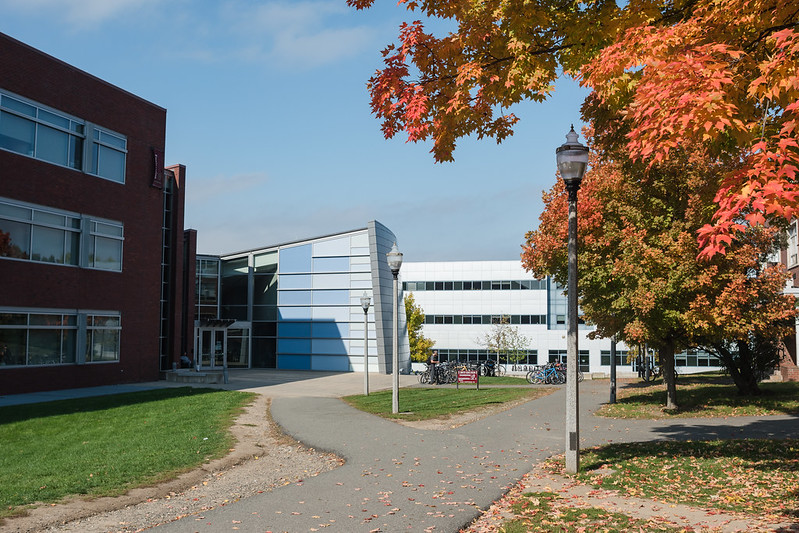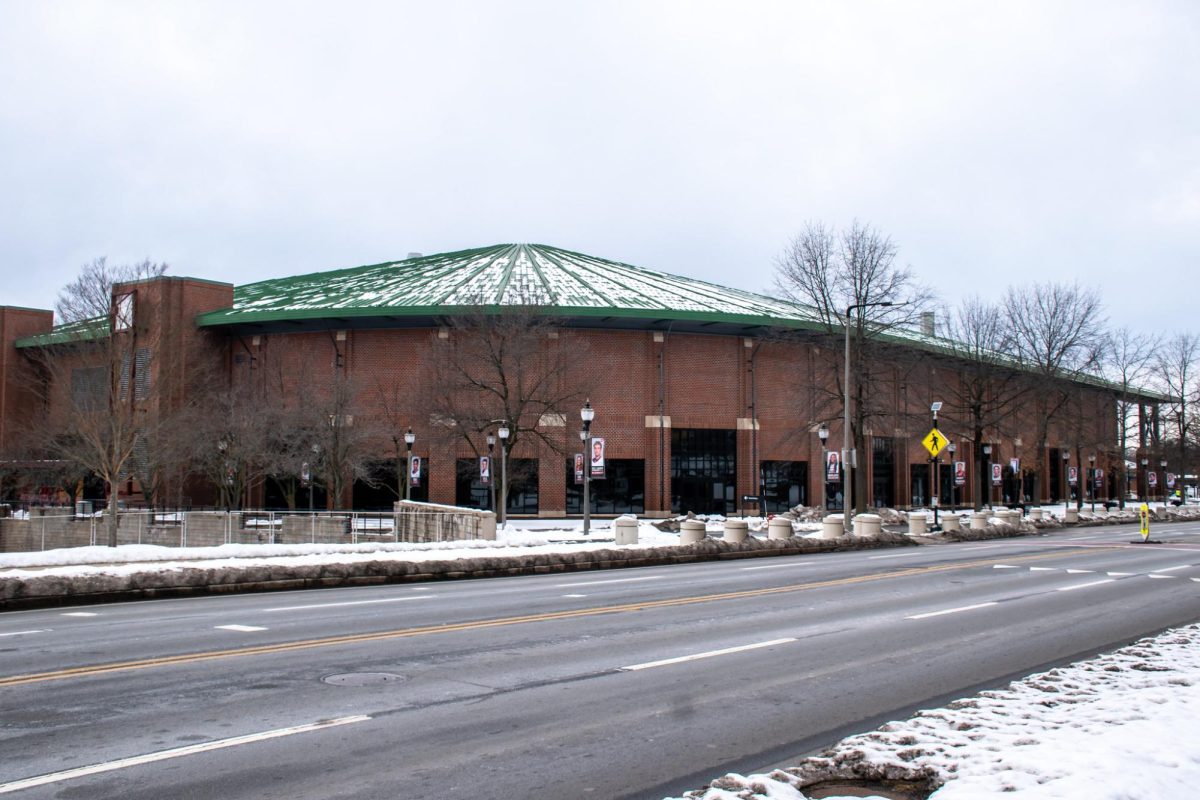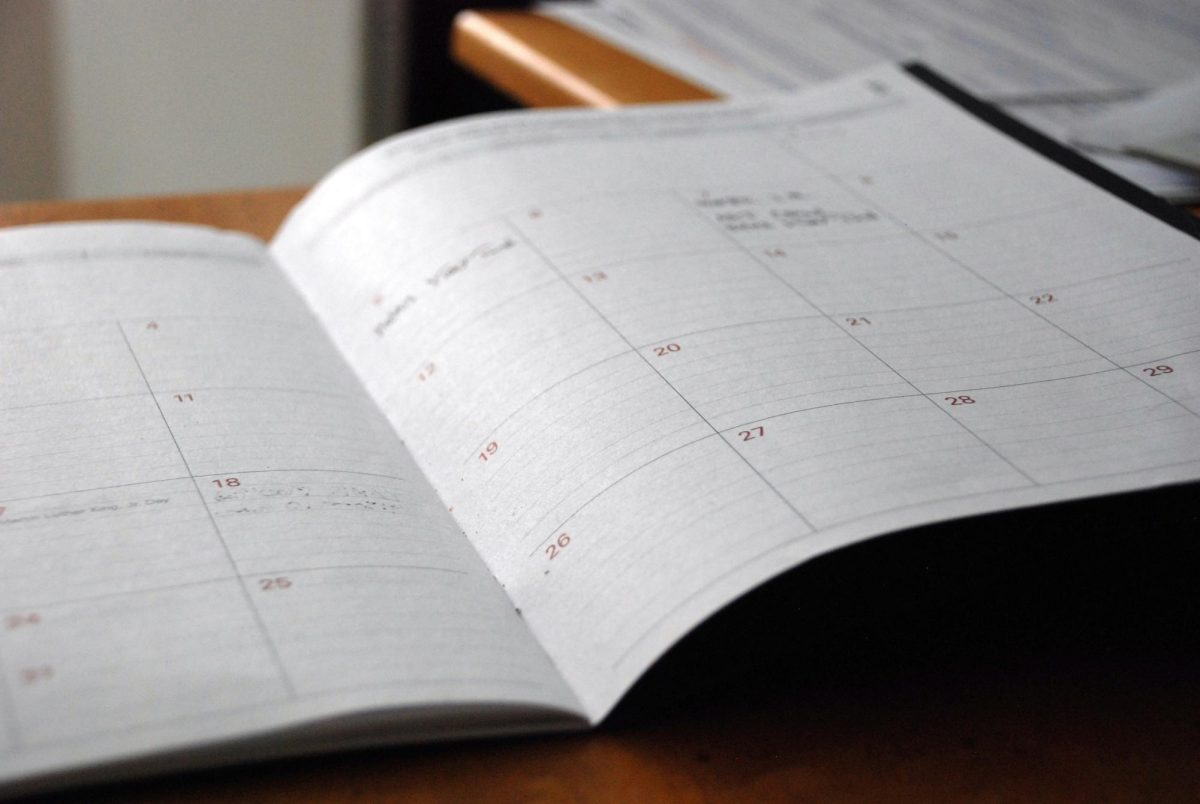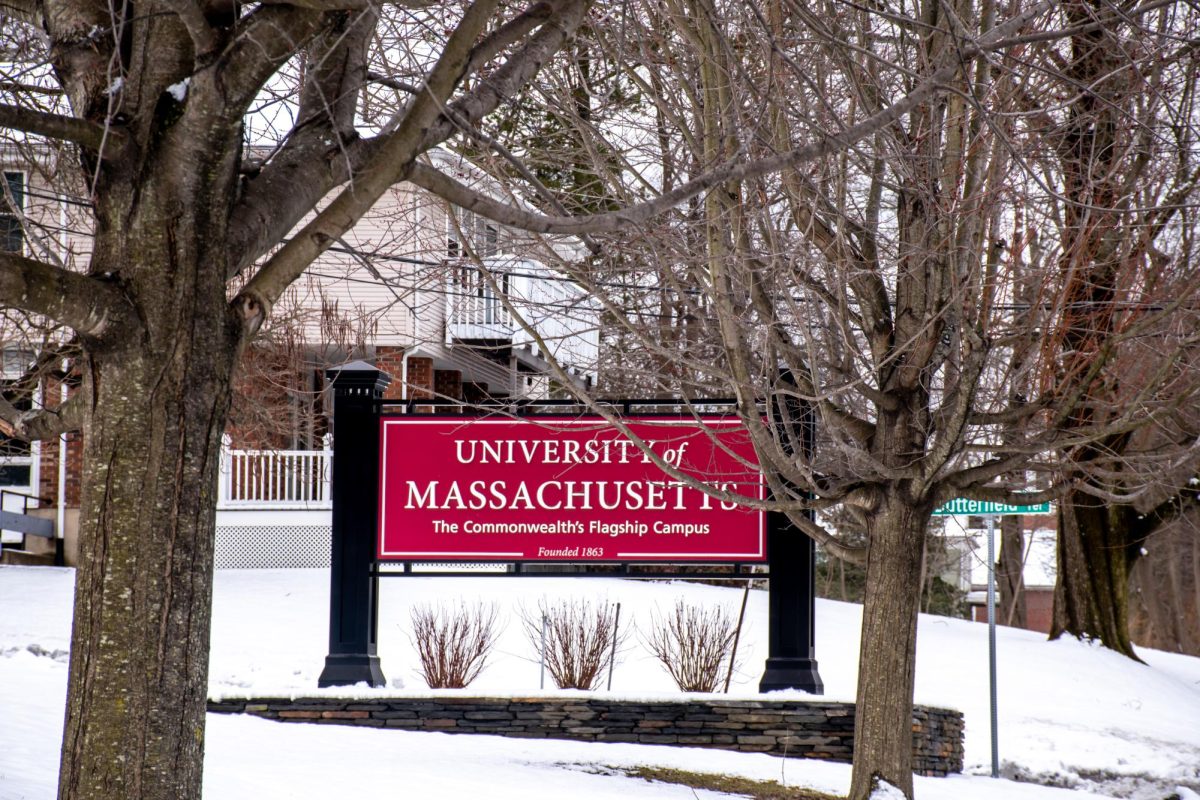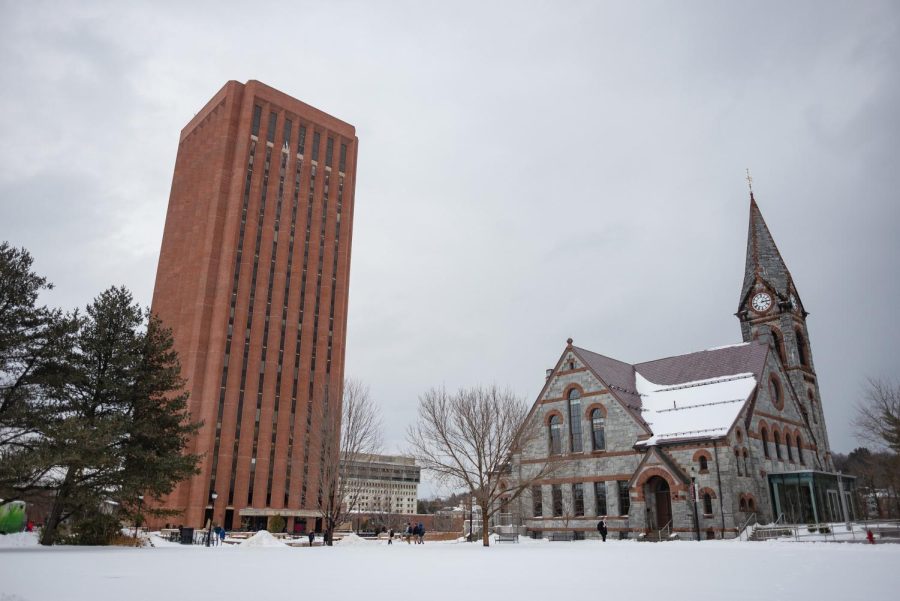
“Food for people, not for profit!” is the slogan of People’s Market, a well-known student-run business at the University of Massachusetts, known especially for its coffee, bagels and “chill vibes.” Painted vividly on the market’s exterior windows of the Student Union, these words face North Pleasant Street, visible to students as they walk toward the heart of the UMass campus.
The slogan is catchy, but it also serves as the business’s living doctrine. Almost every aspect of People’s Market – from its management operations and the products it sells to the advocacy it does as a student-run business – is tailored toward being ethical, politically active and above all, a safe space for students of similar beliefs and values.
“I think People’s Market serves as sort of a hub, for like-minded folks to congregate and share these ideas and pick up what’s going around on campus,” junior communications major Rebecca Rulnick said.
The market, open from 8:30 a.m. to 3 p.m. Monday through Thursday and 8:30 a.m. to 2 p.m. Friday, is a not-for-profit student-run collective business, meaning it sources its food and drinks locally. All of its products are vegetarian or vegan, and the full-time students manage all operations of the market.
Rulnick, who considers herself “a very social-justice oriented person,” is one of 14 co-managers at the market. Having started working there two years ago, after working at the market’s neighbor Earthfoods Café, a student-run vegetarian and vegan restaurant, Rulnick is an avid supporter of the student-run business model.
“It’s very relaxed, but it’s also empowering, because we don’t have anyone looking over us as a boss,” Rulnick said. “So we’re responsible for our own selves, and that means we can take the business in the directions that we want.”
According to Rulnick, being one of the few student-run businesses on campuses puts People’s Market in the unique position of being one of the few alternative food and beverage providers to the main dining facilities on campus.
“That’s what the market was based upon. It was based upon providing options for students that are separate from the UMass mainstream, which is, not to be too hippy, contributing to the capitalist hierarchy that is UMass,” Rulnick said.
However, this autonomy from “the capitalist hierarchy” also entails a constant barrage of work for the co-managers. On a typical day, there are two to three co-managers on shift, doing the necessary tasks needed to run the market. This runs the gamut from managing the register, chitchatting with customers, putting coffee grinds in the percolator and stocking inventory.
And if a co-manager fails to fulfill their responsibilities, there is nobody to fix the issue at hand, only the People’s Market management team. One drawback to being a student-run business: the University will not fix its problems.
“We have to do it ourselves. If we mess up that’s our own fault. We can’t blame anyone else for it. If we forget to order something, then we just don’t have it,” fellow co-manager Hannah Petersen said.
One of the management team’s major duties is purchasing products from its many local vendors. This can be a timely process, as People’s Market is selective in picking its vendors, attempting to buy local whenever possible.
“We try to be as sustainable as possible. We try to buy local whenever we can,” Petersen said.
Co-manager Allison Peter, a sustainable business major, calls this a “solidarity economy,” which involves supporting student and local businesses and incorporating “vendors who are equally as conscious as us,” she said.
The market has dropped vendors in the past because it did not believe they were ethical or supported its business structure. An example is its recent dropping of the company United Natural Foods as the provider of its yerba mate drink.
United is a large vendor headquartered in Providence, Rhode Island, so People’s Market thought its should purchase directly from the independent distributor which makes the product, Guayaki, which became the first fair trade certified yerba mate company in the world in 2009. People’s Market also has a close relationship with Guayaki, having had multiple meetings with Guayaki’s sales associates.
Guayaki is not the only example of the market’s track record of buying locally. People’s Market also buys products from Polar Beverages in Worcester, Tandem Bagel Company in Easthampton and from Dean’s Beans in Orange, a coffee provider known for its own activism and cooperative business model.
Rob Lewis, a junior communications major and frequent customer at People’s Market, finds People’s Market’s locavore efforts helpful to the community. Every other Friday, Lewis goes to People’s Market and hopes to contribute in a little way by doing so.
“Since coming here, getting a cup of coffee and a bagel is part of my daily routine, I can also do something to help out,” Lewis said, as he poured himself a cup of Dean’s Bean’s coffee. “It’s nice. It’s like killing two birds with one stone.”
While People’s Market has an extensive network with businesses in the western Massachusetts community, it also collaborates with outside advocacy organizations and registered student organizations on a frequent basis. According to Petersen, the market tries to incorporate as many RSOs as possible.
“If any RSO wants to help do an event at People’s Market or wants us to sponsor event, we’ll try to work with them,” she said.
Last semester, People’s Market held multiple meetings to organize events to fight against the Dakota Access Pipeline, and more recently, put on a “Pay What It’s Worth” week-long campaign, where if a customer chose to pay above the normal price of its coffee, the proceeds would go to the Trans Women of Color Collective, a grass-roots organization aimed at creating safe spaces for transgender and non-conforming people.
And at the end of the day, when the co-managers at People’s Market count their tips, none of it goes to themselves. Instead, part of it goes to the maintenance of the market and the rest to different charities and collectives the market supports.
“Everybody can be their own boss if they want to. Businesses don’t have to be so oppressive if you keep working toward it,” said Petersen.
Jackson Cote can be reached at [email protected].







